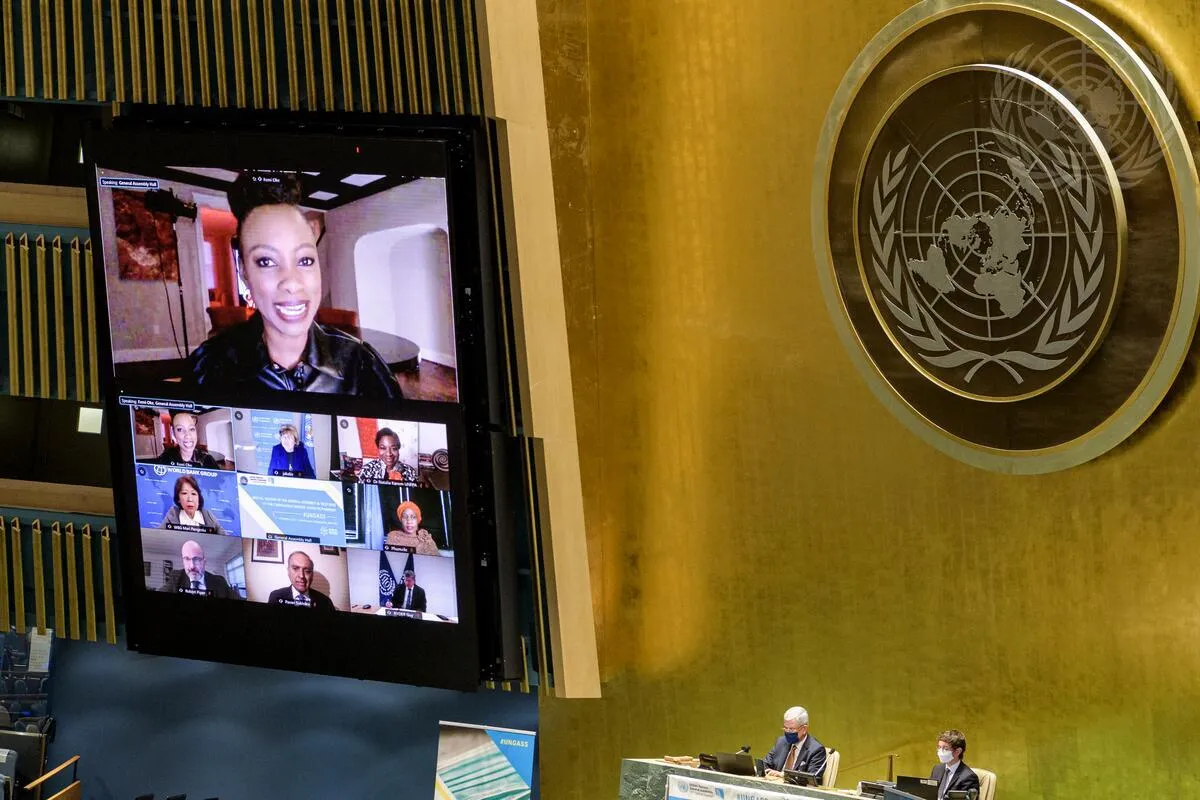The 31st Special Session of the General Assembly in Response to the Coronavirus Disease Pandemic

A Special Session of the United Nations General Assembly (UNGA) took place on 3-4 December 2020 to address the Covid-19 pandemic and its health, humanitarian and socio-economic crisis around the world. International IDEA’s Secretary-General, Kevin Casas-Zamora, issued a written statement to address the special meeting and reiterate the importance of multilateral dialogue and the role of democracy in dealing with the current crisis and future recovery.
Cooperation and partnership between the UN system and International IDEA is highly important and should be further strengthened, in compliance with the UN Member States commitment to global multilateralism. As a result of Covid-19, that partnership has become even more valuable and urgent, as the role of democracy and its institutions affect the crisis response and the long-term consequences at a global level. “The political nature of the crisis and the role of the democratic governance dimensions of national and global responses is a particularly important element underpinning the broad themes addressed at the UNGA Special Session on Covid-19,” stated Secretary-General Kevin Casas-Zamora, which is why it is important to give voice to partners whose contributions will be crucial for the effectiveness of crisis responses and for building trust in public policies fighting the pandemic.
The Covid-19 pandemic is not just a global public health crisis; it has impacted democracy and human rights around the world, and the recovery response that will follow the crisis—the ability to achieve sustainable development and allow space for multilateralism dialogue—will determine whether our societies will “bounce forward,” in UN Secretary-General Antonio Guterres’s words, and how we will be able to “build back better” once the crisis is over. Democratic institutions at the base of sustainable development and they are intertwined with the UN pillars of human rights, development, and peace & security: a healthy recovery from the pandemic requires an attentive assessment on how democratic institutions and human rights have been affected during the crisis.
In the midst of the pandemic, many governments around the world have restricted human rights and civil liberties, as well as limited parliamentary and civic oversight, with authoritarian governments attacking fundamental freedoms and using the pandemic as a pretext for repressive measures against critical or opposition voices or religious, ethnic or sexual minorities. “While certain restrictions can be justified under international law and should even be regarded as unavoidable” added Casas-Zamora, “it is paramount that they are lifted once the Covid-19 outbreak is over.”
The goal of International IDEA is to assess the state of democracy around the world, monitor how governments’ restrictive measures are impacting the state of democracy and human rights, as well as evaluate those consequences of the Covid-19 crisis on democracy and human rights. In that regard, International IDEA has created the Global Monitor of COVID-19´s impact on Democracy and Human Rights—an online platform tool for policymakers, journalists and the public, to access data and analysis regarding the Global State of Democracy, with information on Covid-19 related to democracy and human rights.
Additionally, the monitor builds upon and connects to several other initiatives in which International IDEA participates and has been leading since the start of the crisis, creating a network to track and identify potentially harmful consequences of Covid-19 on democracy and human rights. “Democratic institutions play a critical role for societal resilience in the face of the consequences of the crisis,” concluded Casas-Zamora, stating also that the Global Monitor of Covid-19’s impact on democracy and human rights is a crucial tool to hold governments to account in the current emergency.



